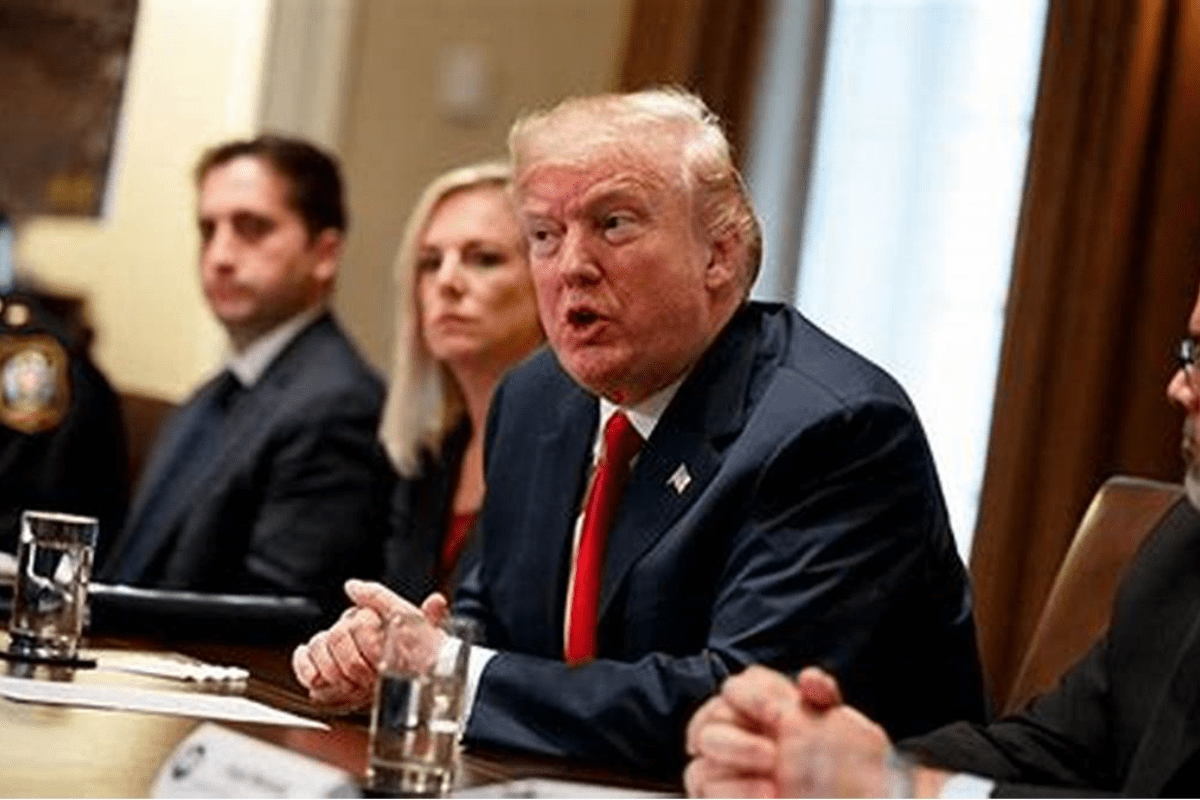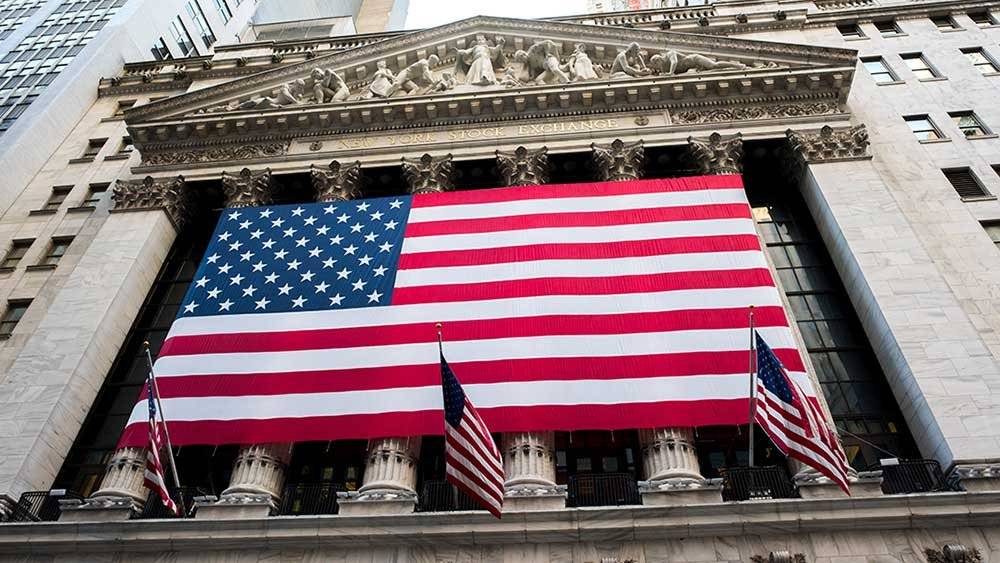Washington: The most significant element in the complex 2025 tax discussion is the 21% Corporate tax rate in the United States. The two parties are attempting to shift this rate in different directions, which may have a significant impact on federal revenue and business earnings.
In the event that Democrats win all of the seats in November, the rate might rise to 28%, and it might fall to 15% if Republicans take control of the government.
With President Biden’s proposed rate of 28%, Republicans’ 2017 tax drop would be reversed, bringing the corporation rate in the United States back to almost the highest level among major countries. A 15% rate would match the lowest level since 1935 and increase earnings while rewarding shareholders.
Some Republicans are leaning toward that rate but the party hasn’t decided on a strategy. Donald Trump the presumed Republican nominee for president, informed business executives last week that he desired a 20% rate.
The biggest American corporations have a disproportionate stake in the outcome of the election since each percentage point is worth more than $130 billion in tax revenue over a ten-year period, resulting in a discrepancy between the parties’ viewpoints of more than $1 trillion.
Why would we want to make American businesses less competitive? And why would we think that by doing so, we would draw foreign investment to the United States? declared Procter & Gamble’s chief executive, Jon Moeller. Moeller is in charge of the Business Roundtable’s tax policy campaign. This group of CEOs from major corporations met with Trump last week.
In order to advocate keeping the 21% rate and extending the international tax code amendments that expire after the next year the group is organizing an eight-figure spending campaign.
Easy political choice for Democrats
A lot of the 2017 tax bill is set to expire, so lawmakers will be grappling with a lot of tax-policy issues next year, including the battle over the corporate rate. Individual tax rates, the child tax credit, state and local tax deductions closely held corporate tax rates, and the inheritance tax exemption are also displayed on the table.
During Trump’s first term corporations benefited from tax cuts and if he wins again, they would gain even more. Several businesses advocated in 2017 for the corporation tax rate to be lowered from 35% to 25% in order to place the nation in the middle of its peer group. The tax was lowered to 21% by Trump and the Republicans in Congress.
In order to obtain comparable after-tax returns, Republicans aimed to send a long-term message to businesses that they could place their investments and earnings in the United States rather than abroad.
However, the longevity of tax policy is contingent upon the political majority that enacts it. After assuming office, Democrats attempted to increase business tax rates. Sen Kyrsten Sinema (I–Ariz.) voiced opposition to the measure, which ultimately failed. The 21% rate was retained, but Democrats established a separate 15% corporate minimum tax.
Raising the corporate tax is one of the Democratic Party’s simplest political decisions because it produces a large amount of revenue for other agenda items. It allows Democrats to focus on businesses that benefited from lower taxes before raising prices they have cited research demonstrating that the 2017 law increased investment somewhat and largely benefited higher-paid workers in terms of pay growth.
One of the most progressive methods of obtaining money is the corporate tax, which mostly affects higher-income households. However, the true distribution of the tax’s burden goes beyond simply referring to “rich people” or “companies.” Most government agencies and economists concur that, in the end, shareholders shoulder the majority of the costs, with workers and consumers also contributing somewhat. In general, shareholders have greater wealth than the entire public.
One of the few ways the United States can indirectly tax foreign investors in U.S. stocks and huge tax-free endowment nonprofits is through the corporate tax. However, certain middle-class homes, pension funds, and 401(k) accounts are also part of the shareholder base.
Democrats and Biden downplay the effects on those communities. Additionally, they do not consider corporate tax increases to be a breach of the president’s promise to shield households earning less than $400,000 from tax increases.
Republicans see 21% rate as successful on Corporate tax
The 21% corporation tax rate and related modifications to international tax laws are viewed favorably by Republicans and business executives. They caution that a higher rate would be detrimental to the economy and point out that no American businesses have inverted—taken a foreign address in order to save money on taxes—since 2017.
This is different from the last several years, when businesses like Medtronic and Johnson Controls went bankrupt. According to Moeller, higher rates today would be more burdensome than they were ten years ago. This is so that a 28% tax would now be 28% on more income because the 2017 law expanded the tax base and eliminated tax exemptions like the one for domestic manufacturing.
The trade-offs between the corporate tax system and the tax code as a whole are just now starting to be considered by lawmakers.

Democrats don’t always agree with Biden’s 28% poll rating. The plan that the Democratic-controlled House Ways and Means Committee endorsed in 2021 is still something Rep. Richard Neal (D., Mass.) is expected to chair if Democrats take control of the chamber.
It included a rate of 26.5% in addition to adjustments in foreign taxation that businesses supported and higher minimum taxes that they opposed. According to Neal, rates aren’t the only consideration for businesses. “The rate is what is advertised,” he declared. “They frequently grow to value the exclusions and deductions more.”
Senator Mark Warner (D., Va.) stated he is still in the wait-and-see phase on Biden’s demand for a 28% rate. Senate Finance Committee Democrats will convene shortly to address the 2025 tax dispute.
He did, however, comment, “It’s interesting when I hear from some corporate CEOs who complain about our $34 trillion debt but also argue for a competitive tax rate.”
Republicans also lack a predetermined strategy.
The chairman of the Ways and Means Committee Rep. Jason Smith (R., Mo.), declared, I’m not going to get pinned in a numbers game . According to Smith, some Republicans might favor an increase in the rate.
Read more
Unveiling the Truth: Hunter Biden’s Book Fails to Soar in Sales, But Captivates Prosecutors

Daisy Morgan is a dedicated business journalist known for her insightful coverage of global economic trends and corporate developments. With a career rooted in a passion for understanding the intricacies of the business world, Daisy brings a unique perspective to her writing, combining in-depth research with a knack for uncovering compelling stories. Her articles offer readers a comprehensive view of market dynamics, entrepreneurship, and innovation, aiming to inform and inspire professionals and enthusiasts alike.







